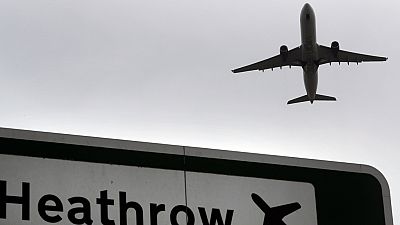Don’t rely on your phone network to tell you when you’re going to be charged extra - they’re not obligated to let you know.
Ever returned from a holiday to be slapped with an astronomical phone bill?
New research from UK communications regulator Ofcom reveals that nearly one in five holidaymakers are unaware of roaming charges when travelling.
It also found that more than four out of five people rely on alerts from their network about roaming charges - but these alerts are no longer mandatory.
Understanding EU roaming charges and which countries they apply to can be confusing - especially since Brexit.
Here’s everything you need to know about EU roaming, where it applies, and how to avoid high phone bills while travelling in Europe.
How does EU roaming work?
EU countries, plus Norway, Iceland and Liechtenstein, have an agreement that allows residents to ‘roam like you’re at home’.
If your phone is registered in one of these countries, this means you can use your domestic allowance of minutes, texts and data when travelling in these countries.
If you pay-as-you-go, you will be charged the same rates as in your home country. This includes making and receiving calls and sending texts between EU countries.
This cap on additional charges has been in place since 2017 and was last year extended until 2032.
However, there are ‘fair use’ limits placed on the amount of data you can use while travelling abroad, which depend on the type of contract you have.
Additional data charges are currently capped at €2 per gigabyte in the EU. This will decrease to €1 from 2027.
EU roaming rules do not apply in Monaco, Switzerland or Turkey, among other countries.
Does EU roaming include the UK?
Before Brexit, Brits also benefited from EU roaming. However, UK mobile phone companies are no longer obligated to provide surcharge-free roaming in the EU.
Temporary protections, including a £45 (€52) monthly limit on involuntary data charges and alerts on data charges and usage, were put in place following Brexit. However, these expired in June 2022, meaning mobile phone companies are no longer obligated to abide by them.
Depending on your contract and mobile provider, you may be subject to the same charges as other non-EU countries when travelling across Europe. Likewise, EU travellers in the UK may face regular roaming charges, depending on their contract.
Which UK phone providers allow EU roaming?
Some UK phone providers still allow fee-free EU roaming as standard. At the time of writing, these include Asda Mobile and GiffGaff (up to 5GB data and unlimited calls and texts), BT Mobile, Lebara and O2.
A number of UK providers have reintroduced EU data roaming charges in recent months. These include EE, Three and Vodafone, unless you have been with them since specific dates in 2021.
Tesco Mobile also began charging new customers for EU data roaming in spring 2023 and TalkMobile for customers who joined or upgraded in March 2023. Sky Mobile now charges all customers for roaming.
How to avoid data roaming charges
Many UK mobile providers offer prepaid add-ons that allow you to use data abroad at reduced prices.
On Vodafone, for example, you can roam in Europe for £2.25 (€2.60) per day, £10 (€11.60) for eight days or £15 (€17.40) for 25 days. With Three’s Go Roam add-on, roaming costs £2 (€2.32) per day in Europe and £5 (€5.80) per day around the world.
Check your phone company’s roaming plan before you travel.
Alternatively, you can buy a local, prepaid sim card when you reach your destination. For this to work, your phone must be unlocked. You will not be able to use your regular phone number but you will still have access to apps like WhatsApp and social media.
If you don’t have a roaming package, be sure to turn off ‘data roaming’ on your phone before landing or arriving in a foreign country to avoid any unexpected charges. Turning on your phone once you arrive could result in charges, if you’ve not already got data roaming turned off.
Use wifi whenever it’s available and avoid data-heavy activities like streaming videos unless you are connected. You can also set a spending limit on your bill to avoid any shocks when you return home.



